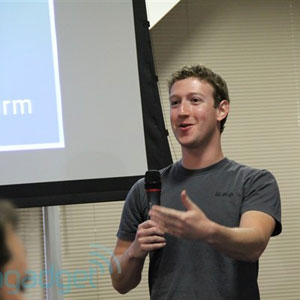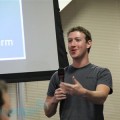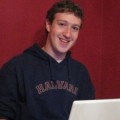Just yesterday, we predicted that Julian Assange or a Steve Jobs-Mark Zuckerberg cocktail would make the cover of Time Magazine as Person of the Year. We were wrong, but not entirely. It was just Mark Zuckerberg. Facebook, which he founded in his dorm less than a decade ago, is described as “something that is transforming the way we live our lives every day. It’s social engineering, changing the way we relate to each other.”
That it is, and it transcends boundaries and beliefs, as evidenced by the map of connections created by a Facebook intern. In some ways it resembles the famous NASA photo of the world lit up at night. But a closer inspection points out the obvious. Russia and China are both pitch black, as are Iran and North Korea. True, Russia has its own rival sites to compete with the Facebook phenomenon, but many of the other black holes are places where freedom of the internet is not a prime national concern.
Though completely unintentional, Zuckerberg and Facebook changed the way we relate to one another. It transcends the national boundaries that once defined us and makes relationships personal, rather than group-based. The site also redefines privacy. No more is the internet a place where people can have multiple, anonymous personalities. Your Facebook persona is your passport to the world.
With ten thousand sites a day now linking to Facebook—and with Facebook keeping tabs on your likes and dislikes—it is also a marketing bonanza, transforming the internet from a vast collection of random, disconnected sites into a true web, with Facebook rapidly emerging as the glue that holds it all together. That’s a far cry from the tool to help him pick up girls that Zuck envisioned in his dorm room.
At 26, Zuckerberg is not the youngest person named Time’s Person of the Year. Charles Lindbergh was 25 when he appeared on the cover of the magazine. But the two did something very similar. By flying across the Atlantic, Lindbergh was the first to really bridge continents and countries separated by a vast ocean. Zuckerberg did the same thing—perhaps unintentionally—using the internet instead of an airplane. To borrow a phrase from Tom Friedman, each of them made the world a little flatter.
Read More at MSNBC.
Read More at Time.

 South Bay Guitar Society Quartet
South Bay Guitar Society Quartet 

